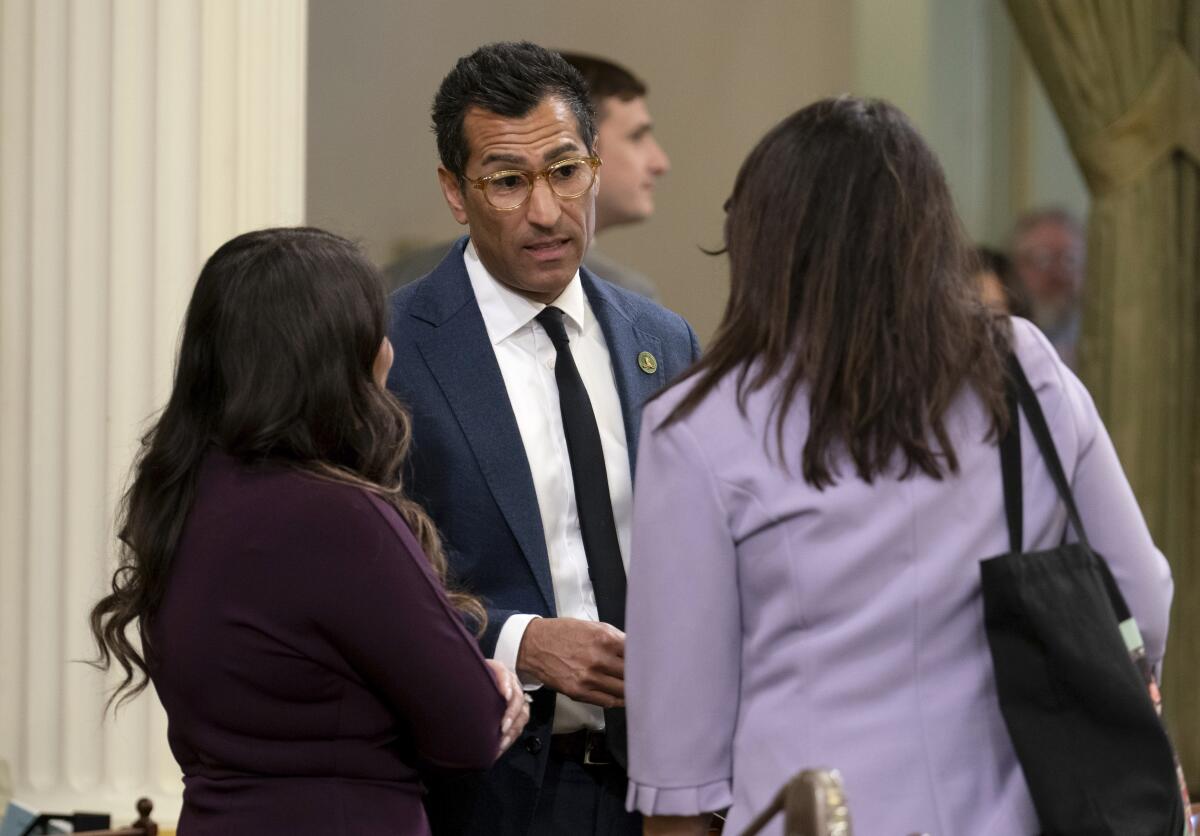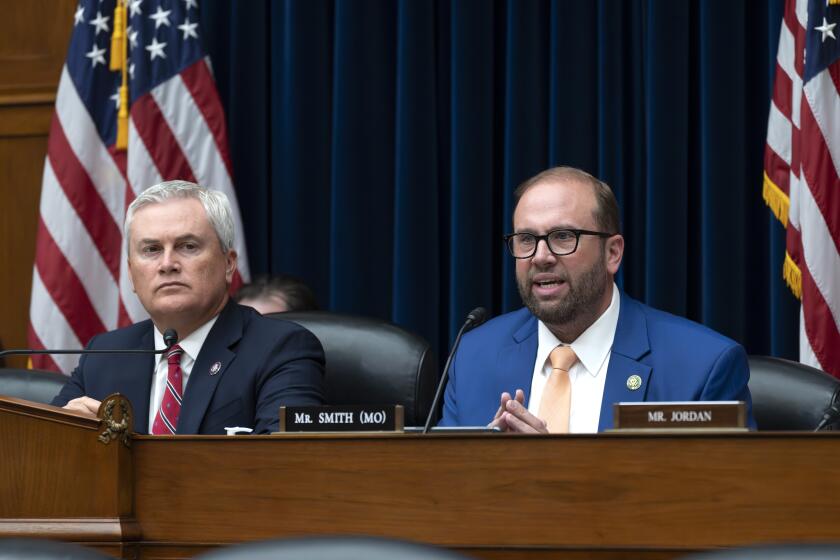Editorial: California lets a minority squash local tax and bond measures. That could change

- Share via
California gives too much power to a minority of voters to block local taxes for parks, housing, transportation and other public investments.
In most elections, decisions are made by a simple majority. But because of efforts by anti-tax initiatives over the years, the state Constitution requires a supermajority — two-thirds of the vote — to pass a local tax to fund a specific program, such as street repairs or homeless housing, if that tax was put on the ballot by a city council or other elected body.
For the record:
3:47 p.m. Sept. 18, 2023A previous version of this editorial said that ACA 1 and ACA 13 await the governor’s signature. In fact, the constitutional amendments go directly to the November ballot.
The supermajority requirement has made it much harder to pass local tax measures because it allows a minority of naysayers to veto what a majority, or more, of their fellow voters support. That’s undemocratic.
Let’s get the lawsuit over Measure ULA in and out of court fast.
There is an opportunity to undo — or at least restrain — the tyranny of the minority over taxes in California. State legislators last week passed two proposed constitutional amendments that address supermajority requirements, albeit in different ways.
Assembly Constitutional Amendment 1 would lower the threshold to pass new special local taxes and bonds to 55%, instead of 66.7%. The change would apply to tax or bond measures put on the ballot by a city, county or special district that would fund affordable housing or public infrastructure. The amendment’s definition of infrastructure is broad, including projects that address water quality, sea level rise, broadband expansion, street improvements and park facilities.
If we’re serious about converting empty offices to address the housing crisis, we should consider incentives that worked in New York and D.C.
It’s true that some local tax measures in California have been able to reach the two-thirds threshold, such as Los Angeles County’s Measure M for transportation and Measure H for homeless services in 2016 and 2017, respectively. But often the hurdle is too high. Even with nearly 60% or more voter backing, communities have lost out on funding for basic government services, street and sidewalk repairs, police and fire stations, and wildfire prevention because they fell short of the supermajority.
It’s time to let voters decide whether to keep the two-thirds requirement or lower the threshold for passing local government-sponsored taxes. It wouldn’t be the first change to the rules on tax thresholds. In 2000, voters passed Proposition 39 to require 55% support to pass school construction and renovation bonds. And several years ago, the California Supreme Court ruled that citizen-sponsored tax increases — meaning, those put on the ballot by people collecting signatures— are not subject to the supermajority requirement.
Anti-tax and business groups want to undo that ruling with a measure on the November 2024 ballot. Assembly Constitutional Amendment 13 is a clever effort by Democratic legislators to thwart this effort.
House GOP members have started an inquiry into progressive charities, but not tax-exempt groups that spread Trump’s election lies and suppressed voting rights.
The California Business Roundtable, Howard Jarvis Taxpayers Assn. and other well-funded business interests are behind a constitutional amendment that would override the state Supreme Court decision on citizen-sponsored initiatives and require a supermajority to pass local tax or bond measures that finance specific programs. It would also reclassify some fees as taxes, meaning agencies would need to get support from 66.7% of voters to raise them.
And the initiative would require that any bill to increase statewide taxes would need to be passed by a supermajority in the Legislature and a majority of California voters. That’s a big change. Currently the Legislature can pass a tax by a two-thirds vote without having to get voter approval.
The ballot measure is designed to make it much harder for California to raise revenue through taxes and fees by — again — giving a minority of voters veto power over the majority’s desires.
Legislators couldn’t stop that measure from qualifying, but they can make it harder to pass with this proposed ballot measure. ACA 13 would require that any citizen-initiative ballot measure that raises the vote threshold for tax increases be passed by the same threshold. So the business group proposal to expand the supermajority requirement would also have to pass with a supermajority vote of Californians. It’s only fair.
Voters deserve a chance to restore a core democratic principle that tax and funding decisions ought to reflect the will of the majority.
More to Read
A cure for the common opinion
Get thought-provoking perspectives with our weekly newsletter.
You may occasionally receive promotional content from the Los Angeles Times.













